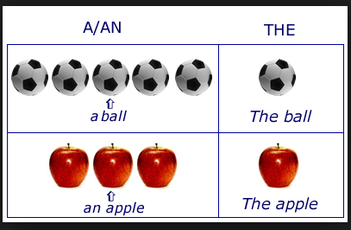|
One of the challenges of speaking English is making sure to use the "little words" correctly: articles, prepositions, and other grammatical markers. There are many other languages that don't use articles (a, an, the), so it can be hard to remember them and to know which one to use. These words are frequently unstressed in the sentence, which means they are also harder to notice when listening. But if they are absent, it is very noticeable.
You can learn more about how to use articles correctly here.
0 Comments
Buzz Feed frequently plays with language and culture, from people trying international junk foods to trying out different accents. Here's a fun clip of people around the world showing off their best attempts at the American accent. Much of our focus when changing our speech is on pronunciation, or how we say the sounds in words. This is important for being understood, but it is not the only element of an accent. It might not even be the most important element when trying to make yourself understood in English. The musical patterns of our speech, or intonation, might just be more important than how we say the words. Intonation is complex and conveys meaning. There are some rules and distinct American patterns. For an entertaining look at how much we use intonation to convey meaning, check out this video. If you can't understand quite what they are saying, it's probably because they aren't actually speaking English. But despite this, you can almost get the message.
Pronouncing vowel sounds can be challenging in a foreign language. This is because we interpret the vowels we hear through the filter of our native language. We hear a sound close to a vowel sound in our language, and our brain lumps it together with that known sound. Fortunately, we can learn to override this filter and adapt it to include a different set of vowels. But we have to know which words have the new vowel sound, and with the lack of consistent spelling in English, this is a learning process.
Let's look at the vowel sounds one sound at a time. The best way to re-train your brain to hear these sounds is to use listening skills. But being familiar with the variations in spelling will also help you succeed. The sound /ɪ/; or "vowel ɪ," is challenging for many non-native English speakers. In English, this vowel sound has at least six different ways that it is spelled, however, it is most frequently spelled with the letter i and is sometimes called "short i". You can see examples of the sound's various spellings in the chart below. To learn more about pronouncing this sound, you can read here. |
Subscribe to this blog:
Categories
All
Archives
March 2021
Copyright 2020
Christine Dunbar Have Questions?
Get A Free Consultation We offer a free 30-minute phone consultation. Schedule yours now. |





 RSS Feed
RSS Feed



